2024 Annual Research Report

Mobilizing for Impact. Together.
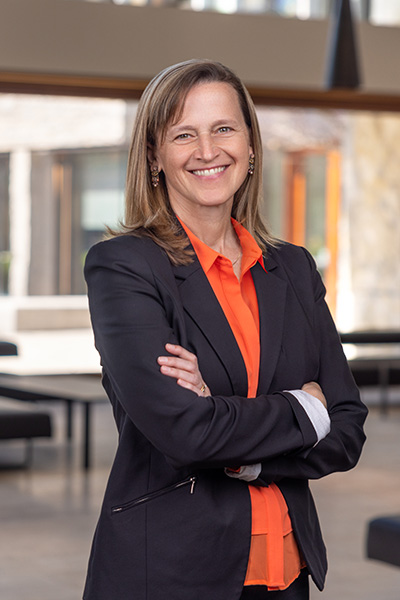
Impact. It's what drives our research mission at Western.
Impact for our communities, our environment, our health, our culture and our economy. More than anything, impact for people.
Increasingly, finding solutions requires us to think bigger and to broaden our reach. It means approaching problems from new perspectives and with new partners.
This year, we welcomed new research programs that better connect our knowledge, experience and expertise with others. This research is helping to build community, protecting us from severe storms, strengthening Indigenous entrepreneurship and stopping the spread of infectious disease.
“…finding solutions requires us to think bigger and to broaden our reach."
Our research institutes, too, are deepening global ties to bridge philosophy and science and to tackle grand challenges related to Earth, space, our brains and lifelong mobility. You will find some of these stories here, in our first Western Research annual report.
We are grateful to everyone who supports this mission, from our campus community to partners, funders, alumni, advocates and donors. We have even bigger aspirations.
Next year, we will continue to focus on strengthening relationships, and on building new ones – within the region and across the globe.
Can Western’s researchers help you answer your biggest questions? Can our trainees strengthen your workforce? Are you interested in participating in a research study? Can knowledge and technologies developed here make you more competitive? Let’s talk.
This is how we’ll have impact. Together.
Penny Pexman
Vice-President (Research)
December 1, 2024
Research Funding
⇧111.7%
Canada Foundation
for Innovation
⇧0.5%
Natural Sciences
& Engineering
Research Council
⇧20%
Social Sciences
& Humanities
Research Council
⇧11%
Canadian Institutes
of Health Research
Canada Research Chairs
Canada Research Chairs are widely viewed as the ‘gold standard’ for excellence in Canadian research. This reputation provides significant benefits for recruiting talent, opening doors to national and global partnerships, and supporting scholars’ efforts to pursue answers to some of the world’s most important questions. Western is now home to 68 active Canada Research Chairs from a wide range of disciplines, including eight new Chairs announced this year:

adam patrick bell
Music, Inclusion and Accessbility

Katarina Grolinger
Engineering Applications of Machine Learning

Yanping Li
Climate Change Risk and Resilience

Lindsay Nagamatsu
Activity for Brain Health and Aging

Angela Roberts
Data Analytics and Digital Health in Cognitive Aging and Dementia

Kirsty Robertson
Museums, Art and Sustainability

Ayan Sadhu
Smart and Sustainable Civil Infrastructure

Jackson Leween, 2bears (Tékeniyáhsen Ohkwá:ri)
Indigenous Arts Research and Techonology
Celebrating Successes
Last year, Western scholars were recognized with more than 80 prestigious disciplinary, national and international awards and distinctions. This recognition speaks to the excellence of Western’s research community and to the impact our researchers have globally. Please find a sample below:

Vladimir Hachinski
2024 Ryman Prize

Yolanda Hedberg
Chemical Institute of Canada Fred Beamish Award

Ryan Stevenson
Dorothy Killam Fellowship

Luke Stark
CIFAR Azrieli Global Scholar
Royal Society of Canada
The Royal Society of Canada is the country’s national academy, recognizing outstanding achievements and extraordinary leadership in a wide variety of fields.
New Fellows are elected annually for their contributions, as are Members of the College of New Scholars, Artists & Scientists, which recognizes achievements by early career researchers. Last year saw three scholars recognized at Western, including two new Fellows.
Partnering for Greater Impact
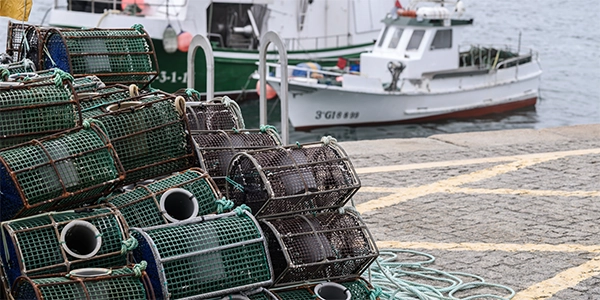
Sustainable, Entrepreneurial Solutions For Fishing Industry
Imagine finding a way to repurpose salmon heads in agricultural or cosmetic products or developing a health-care solution using protein found in eels.
That’s the kind of innovation Western Research Chair and biology professor Raymond Thomas is targeting in a new effort between Indigenous communities, companies in Canada’s seafood industry and academics around the world, called Marine Biomass Innovation. The initiative is developing sustainable, entrepreneurial solutions that reduce waste.
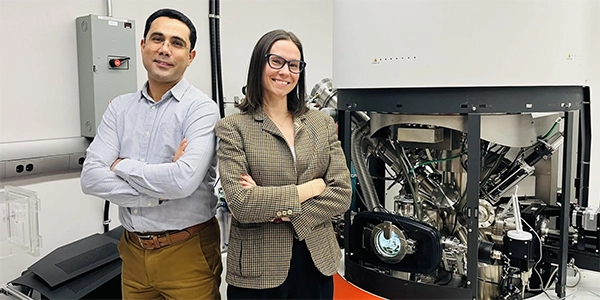
Fuelling a Safe Future for Nuclear Power
Small modular reactors (SMR) are considered the future of nuclear energy because they are smaller and, more importantly, safer. Preserving that safety is a key priority for Western researchers Hamidreza Abdolvand and Samantha Gateman.
Working with industry and academic partners, the researchers are exploring how different spent nuclear fuels from proposed SMR technologies will impact containers designed to encapsulate nuclear waste at power plants.
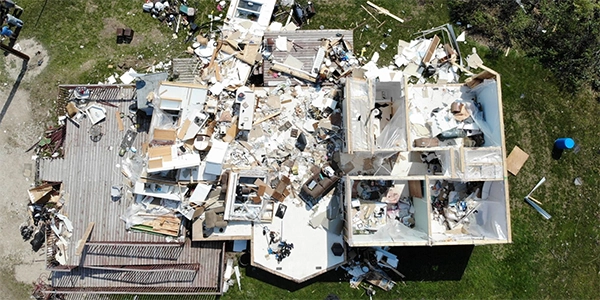
Transforming Understandings of Severe Storms
A global leader in wind engineering and climate resiliency for 60 years, Western is changing the way Canadians think about the country’s most dangerous, damaging and costly weather events.
Fuelled by a transformative $20-million investment from partner, ImpactWX, Western is now home to the Canadian Severe Storms Laboratory, which will improve severe and extreme weather detection, documentation and mitigation strategies across the country.
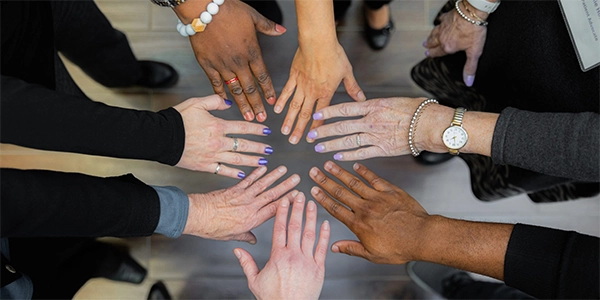
Fostering Meaningful Research Partnerships
This year, Western launched a new program to support research collaborations between researchers and non-academic partners from diverse sectors, including non-profit, government, industry and corporations.
Research Engagement Collaborative Alliance with Partners provides resources and supports authentic partnership engagement opportunities to mobilize knowledge and have impact on society. It is open to researchers and collaborators globally.
Working Across Disciplines, Sectors
Grand challenges require collaborative and interdisciplinary approaches because they require collaborative and interdisciplinary solutions. Bringing together diverse perspectives and experience is key.
Western’s four research institutes and the Western Academy for Advanced Research engage experts across faculties and sectors to build focused research capacity aimed at tackling major questions and helping to create a better world.
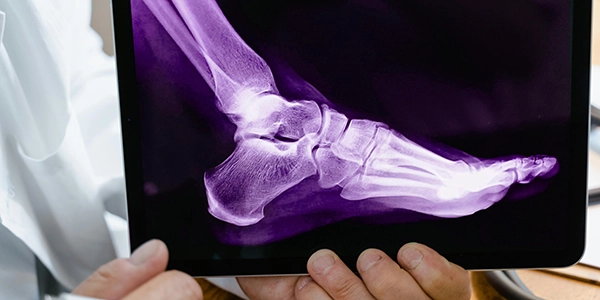
Joint Efforts Sustain Mobility
Musculoskeletal conditions prevent 1.7 billion people from living life to the fullest. By moving research out of the lab and into clinics and communities, the Bone & Joint Institute’s 300 members are helping to restore movement, lower costs and increase happiness.
This year, the institute focused on four grand challenges, including new approaches to understand and treat back pain, to promote situational awareness for safe mobility and to understand the impact of corrosion on implant failures.
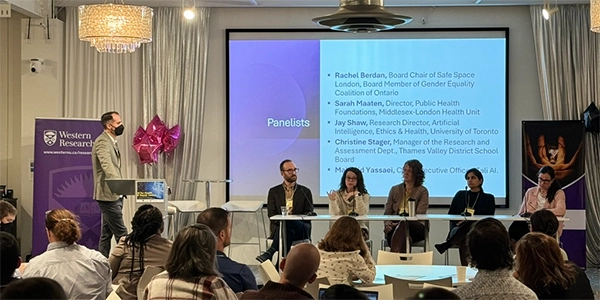
Bridging Philosophy, Science
The Rotman Institute of Philosophy builds bridges. Bridges between philosophy and science, and even more between academia, policy-makers and society.
Crossing these bridges collaboratively allows the institute’s 125 members to help address complex ethical dilemmas in such areas as public health, synthetic biology and uses of AI. Just this fall, the institute welcomed 60 community partners from across southwestern Ontario to better understand how AI can advance social justice in public and population health.
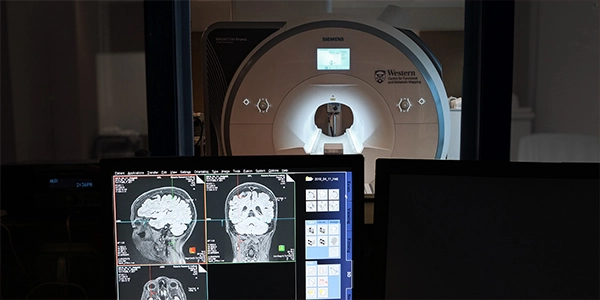
Unlocking Mysteries of the Brain
For many, understanding the brain is the final frontier. And over 50 years, neuroscience has produced some of Western’s most internationally recognized research.
Home to 350 members, the Western Institute for Neuroscience is unlocking mysteries of the brain for societal benefit. Several of its members are leading the first multi-continental research conducted on long COVID, which affects at least 65 million people globally. Closing in on a treatment, they begin clinical trials in 2025.
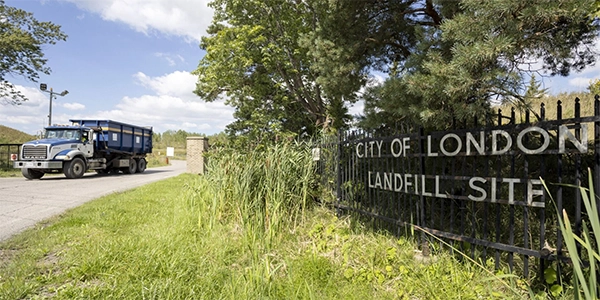
Making Space on Earth
You can’t separate Earth from space. So, what we learn from one often applies to the other.
As a result, many of the 90 members of the Institute for Earth and Space Exploration are generating solutions that use space technologies and breakthroughs here on Earth – and vice versa. By using satellites and other tools to study methane emissions at a local landfill, for example, they are helping partners across sectors identify emissions and developing new technologies for space- and ground-based monitoring.

International Teams Bring Global Solutions
Discovery values unique, global perspectives and shared time to think about major questions. The Western Academy for Advanced Research offers both.
A year after its term, the Mathematics of Neural Networks theme continues to make progress, using stem cell research to bridge gaps between mathematical ideas and medical solutions and by forging new pathways for artificial intelligence. This year, its work also led to the creation of the Fields Lab for Network Science, part of the renowned Fields Institute.
Innovation
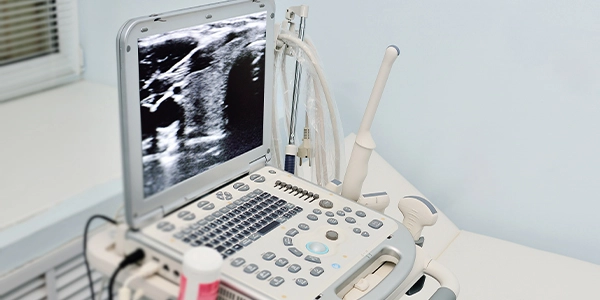
Spinoff Takes Deep Breath
Point-of-care lung ultrasound can save lives. By using AI, London spinoff Deep Breathe hopes to increase adoption and bring it into regular use.
Based at Western Research Parks, the company leverages expertise from medicine, deep learning, computer vision and software engineering. Their technology relies on millions of de-identified clinical data points to train deep learning models, which have shown promise for more quickly identifying conditions like heart failure, pneumonia, COVID-19, pneumothorax and pleural effusion.
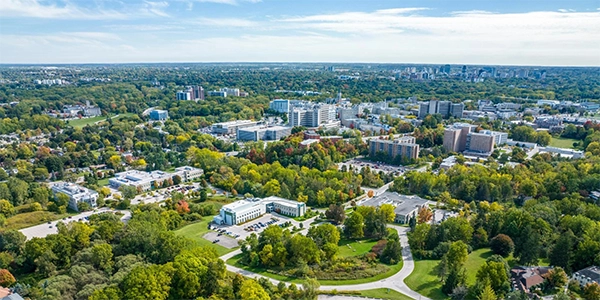
Parks Lead Innovation
For 35 years, Western Research Parks have connected academics and industry, helping to build businesses and bring discoveries to market.
Across three sites, the Parks are home to dynamic startups and publicly traded and multinational companies. They create community, where purposeful intersections and collisions help organizations thrive in southwestern Ontario’s booming entrepreneurship ecosystem. In the process, they contribute $58 million annually to the region’s economy. That is innovation. That is impact.
47
Reports of Invention
8
Patents
Issued
$58M
Western Research Parks' Economic Impact
261
Active Licenses & Options
50
Active Startups & Spinoffs
Student & Trainee Research
323
Undergraduate Summer Research Internship participants — out of more than 800 applicants
140
Inspiring Minds Submissions
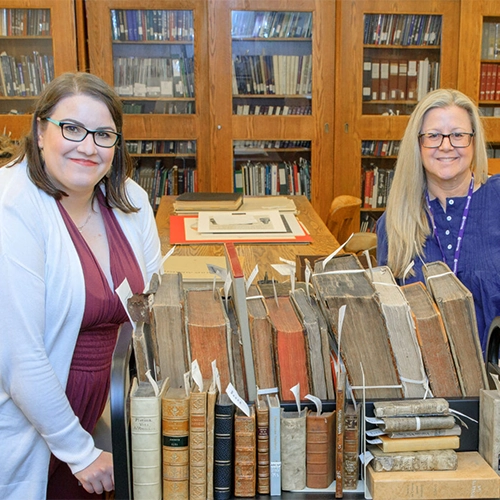
Gaining Research Experience at Home, Abroad
From hunting for fragments of medieval manuscripts to understanding climate-induced changes to remote water systems and uncovering hidden histories, Western’s Undergraduate Summer Research Internships program creates diverse research experiences that teach new methods and techniques alongside faculty mentors.
In its fifth year, the program provided 323 interns with unique opportunities to learn, not just in the classroom, but in the lab, in the field, with partners and in other research spaces.
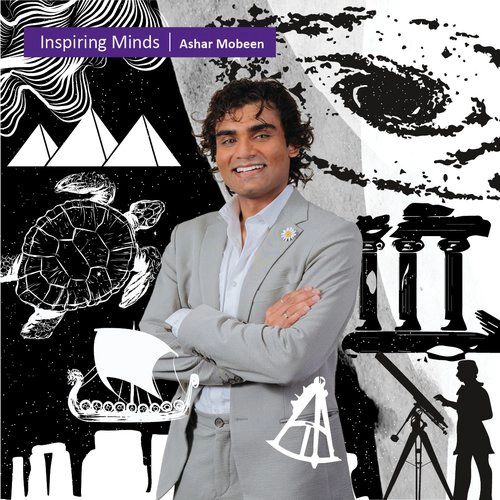
Students Tell their (Research) Stories…Briefly
The ability to communicate complex concepts to broad audiences has become increasingly important, regardless of profession. Western’s Inspiring Minds program puts these skills to the test by providing training and encouraging graduate students to share their research in 150 or fewer words. It also increases the profile of their research.
Since the program’s inception in 2021, we have helped tell nearly 700 student research stories from all faculties, which have been read more than 40,000 times in 142 countries.
International Research
Not only do Western’s researchers, scholars and artists carry out their work around the world, they partner internationally and mobilize their knowledge to benefit individuals and communities wherever they can most benefit from it.
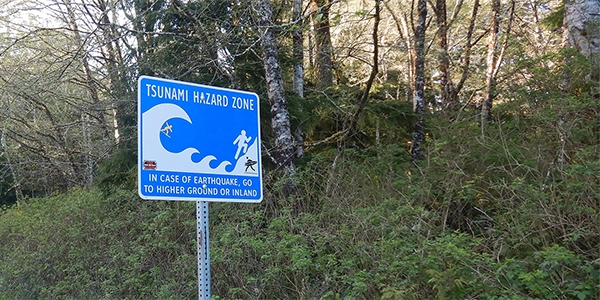
Strengthening the World's Coasts
As global temperatures climb, so do simultaneous and consecutive climate risks like rising sea levels, floods, storms, hurricanes and geological hazards like earthquakes and tsunamis. These dangers pose direct threats to coastal areas worldwide because of their physical and socioeconomic vulnerability.
Beginning in Canada, Cuba and Indonesia, researchers with Western’s Centre for Multi-Hazard Risk and Resilience have begun identifying vulnerabilities and co-creating enhanced pre-disaster recovery-preparedness plans tailored to cultural and socioeconomic needs of targeted areas.
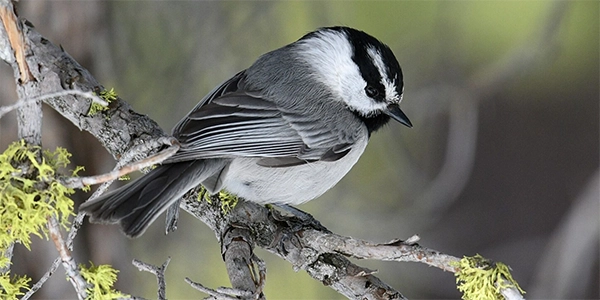
Work Smarter, Live Longer
Survival of the fittest reigns supreme in the animal kingdom. But animal behaviour and cognition researcher Carrie Branch and collaborators in the United States have also shown that working smarter, not harder, improves natural selection and survival rates of chickadees.
How? They tracked the spatial cognition and lifespan of 227 mountain chickadees for more than a decade, finding that those with better spatial learning and memory abilities lived longer. It makes sense: these are important skills for hungry birds trying to remember where they have stashed food.
Looking Ahead
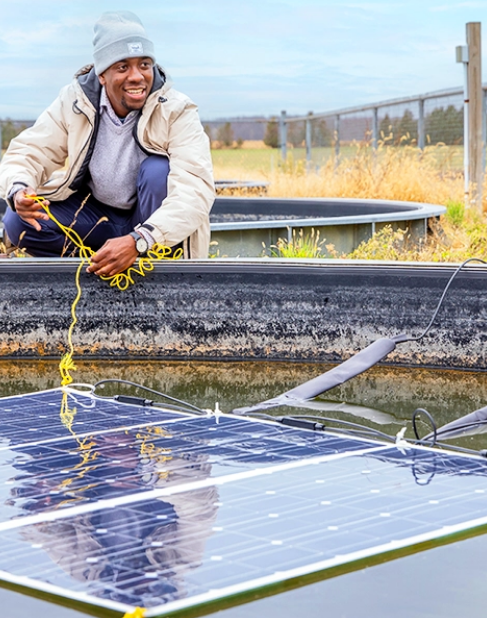
This is only a small sample of the research, scholarship and creative activity that excited us at Western over the past year – and, as importantly, the scholars behind it.
Their work is foundational, applied, innovative and creative. It spans the nanoscale to the enormity of the universe and all points between. It produces impact felt by individuals, communities, cultures and our planet.
Increasingly, it is developed with and for others.
There is so much more to come in 2025. We look forward to sharing it with you as partners, knowledge-users, interested citizens, donors and funders, employers, tenants and members of our extended Western community. Thank you for all you add to our shared success.
How can our research support you, and how can you contribute to it? If you have questions, or would like to stay in touch, please reach out.
We look forward to mobilizing knowledge for impact. Together.


